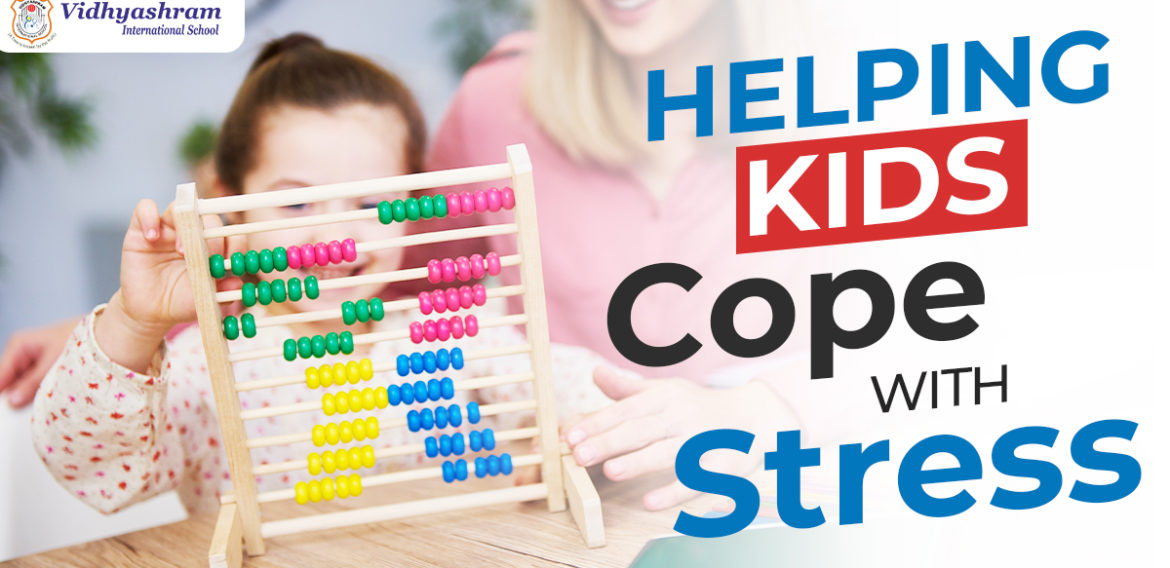Helping Kids Cope With Stress
Studies show that kids are under more pressure now, both socially and academically, than a few decades ago. The combined pressure of assignments, competition, social life, and a lot of screen time has resulted in much higher levels of anxiety and stress at a very young age.
Children might have to face a bully, a disappointing sports performance or lesser marks in the exam. They are also under constant pressure to dress the “right” way or achieve high grades.
But before you can help your child deal with stress, you have to be able to recognize it. Younger kids are not sure if they are stressed or irritated. Older children might not want to talk about how they feel. However, changes in behavior or personality can be better signals than words. Here are some red flags:
- You can compare from their past behaviors, such as being clingy, sucking thumbs, or wetting the bed.
- Changes in eating habits. Such as not eating at all or eating a lot.
- Signs of fear, such as trembling, crying, or nightmares
- Changes in temperament like looking irritated, bursts of anger, or temper tantrums
- For depression, sadness and withdrawal are the key signs
- Physical complaints, such as stomachaches, headaches, and often complaining of not feeling well
- Changes in sleeping habits, such as trouble sleeping or sleeping a lot more than usual
Ways To Help Children Cope With Stress
Don’t Overschedule Your Kids
Don’t indulge your kids in too many activities at the same time. Parents sometimes enroll their kids into multiple classes like sending them to an art class, dance class, sports coaching, everything at the same time.
Let them learn things one at a time, do not exhaust them and leave weekends activity-free. Let your kids figure out which extracurricular activities they enjoy the most and which ones they want to skip.
You can also rotate activities. For instance, sign up for basketball in the fall, dance in the winter, and karate in the spring instead of scheduling all three at the same time. Switching things up will also help prevent burnout and boredom.
Start Talking About Stress
You can start a conversation by asking them about their day in school. Simply asking them about what they liked in the school and what made them upset can help. They may be more reluctant to talk face to face, so try talking in the car or at the park while playing instead.
If you’re having a tough time starting a verbal conversation, try writing instead. Start a journal where you two can write what happened during the day and what they liked and disliked.
Find Good Distractions
- Find something that makes them laugh.
Tell silly jokes, play some games to them better like Would You Rather questions, or do crazy art together. Laughing can make kids feel better and reduce stress.
- Help others.
Teach them to help others. Like, find a place where they can volunteer, for instance, providing food to the needy people or helping poor kids in any form.
You should also perform random acts of kindness for others, so your kids learn from you. Focusing on other people can distract them from their own worries.
- Play a game.
Spare some time for your kids and pull out your favorite board game from when you were little. Teach them how to play. This is the best way to connect and bond with your child.
Build Positive Coping Skills
It is important to help children learn how to cope with stress. These skills often help even when they are an adult.
- Provide a good example. Keep calm in front of kids and express your anger in appropriate ways. Share the ways in which you can reduce stress with your children and family.
- Teach them about consequences. Children need to learn about the good and bad of their actions. For example, award them with their favorite chocolate or ice cream when they help somebody. And in case they break another child’s toy, they must find a way to replace it.
- Encourage them to eat healthy and emphasize the importance of a correct lifestyle.
- Allow children to make small choices within your family. For example, allow them to pack their bags for a trip, arrange their rooms, or choose family activities, and help make decisions.
The Final Word
Make sure you know when your child needs help, and they are not alone. Many times, what might seem like minor stress to an adult can be terrifying for the kids. So help your children to work through stressful situations and make them stronger.
Also read – Tips to encourage your children to participate in Extracurricular Activities









